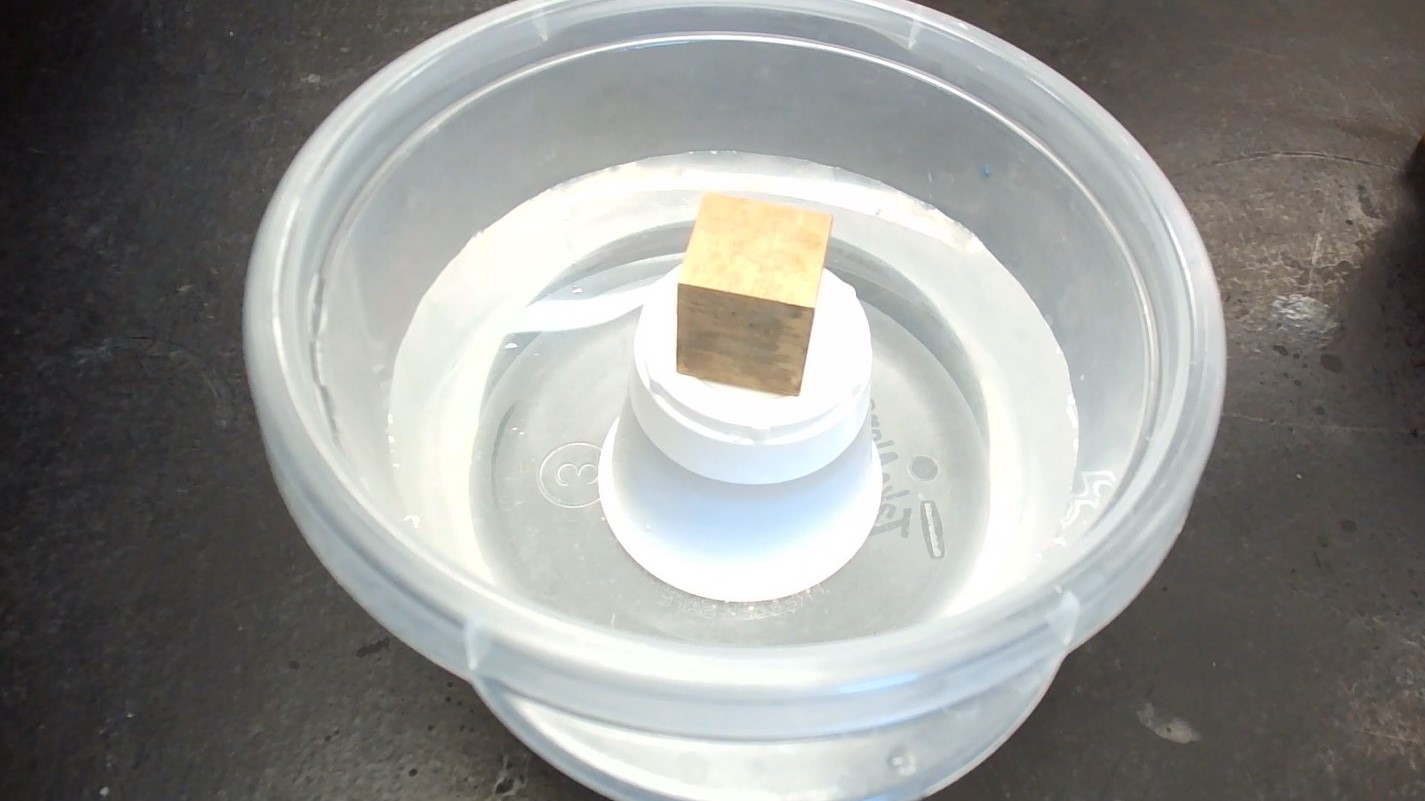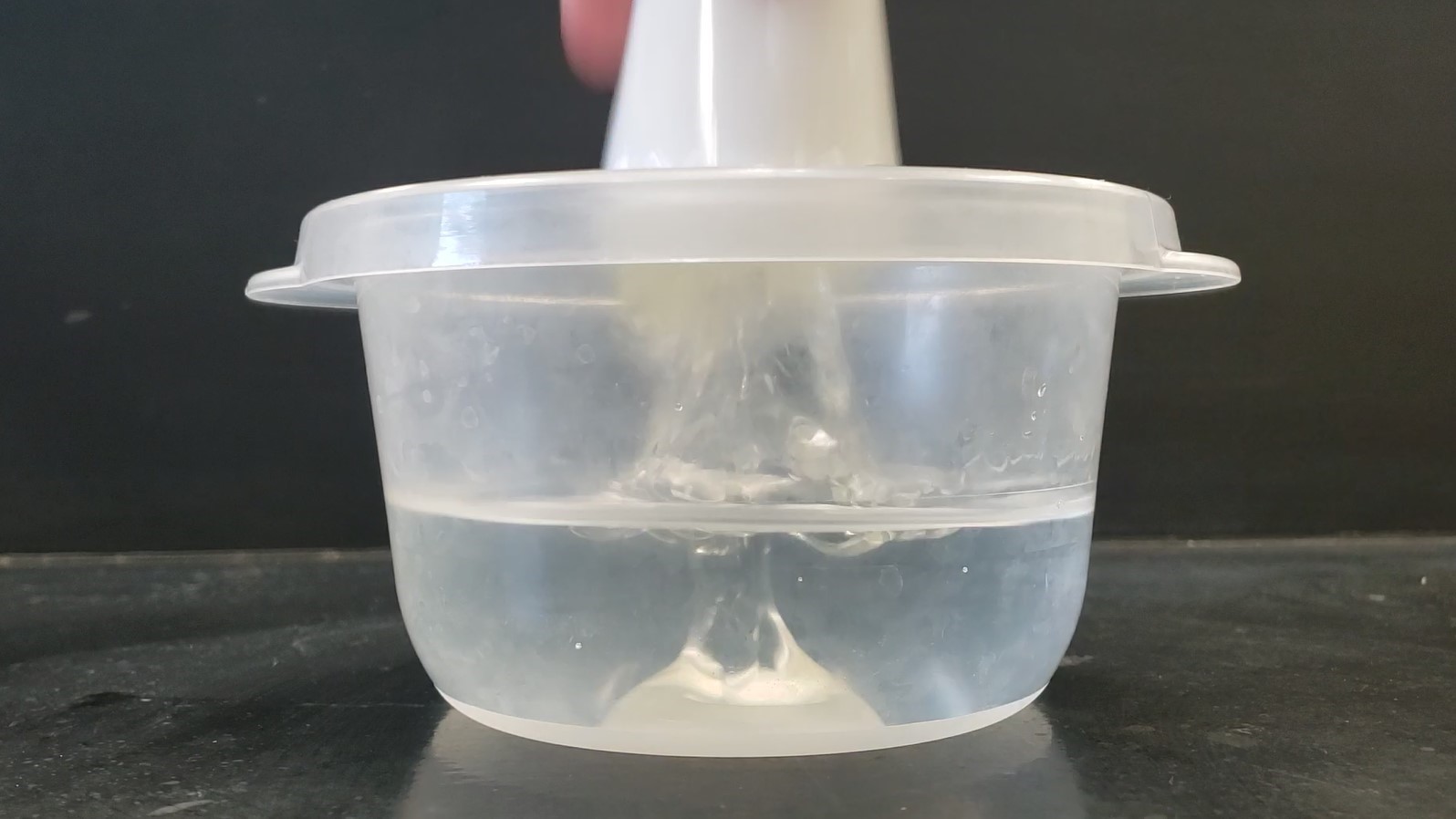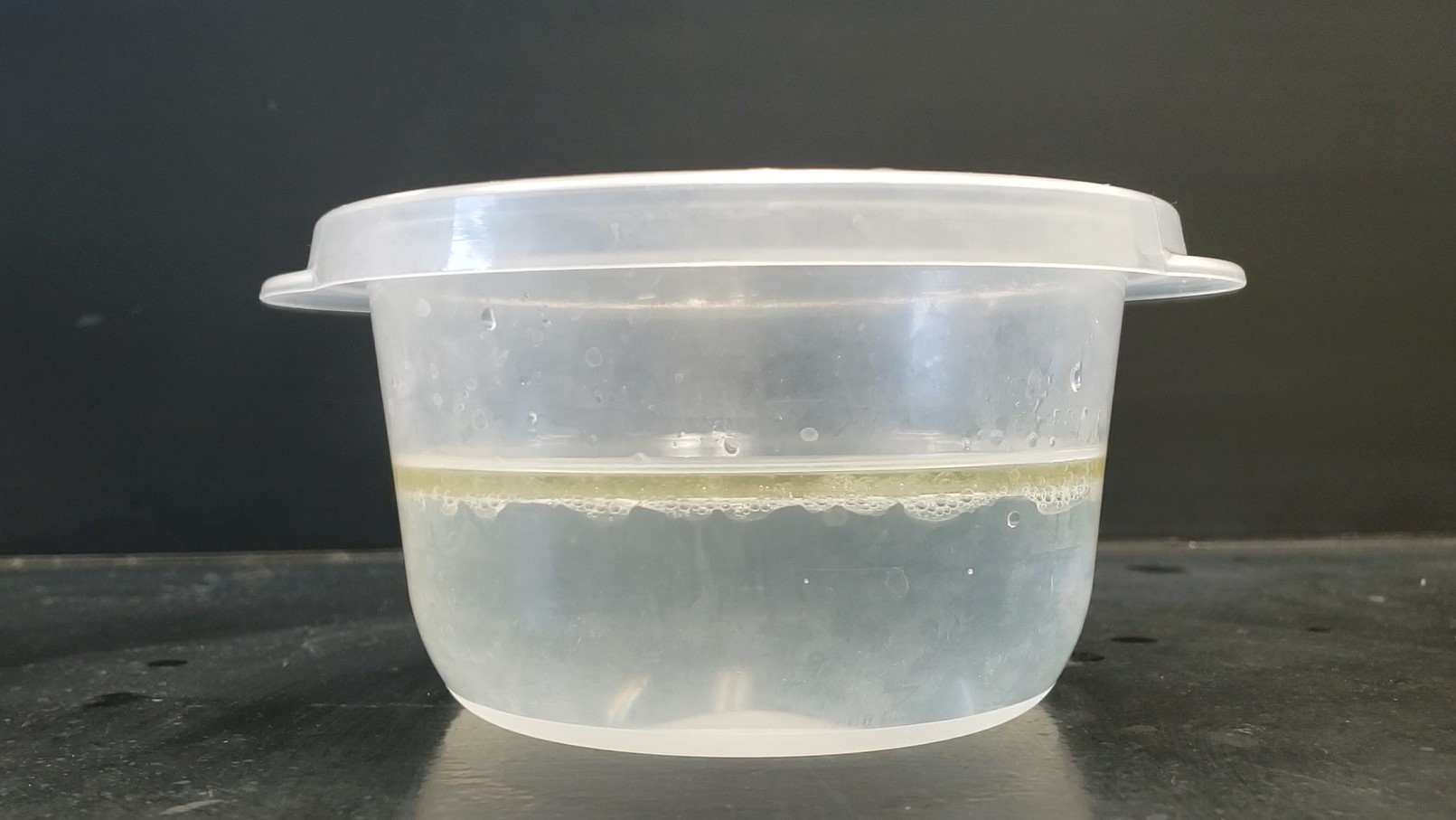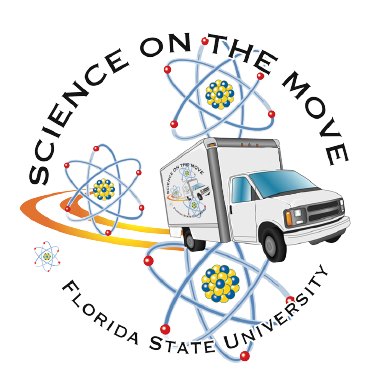Overview
Students build and observe a simple model of an oil spill, gathering evidence to support an explanation for what would happen if an undersea pipe on an oil rig breaks. The investigation closes with a discussion about the spread and impacts of the 2010 Deep Water Horizon Oil Spill.
- Grades 4-8
- In person and virtual visit options available.
- For in person visits, access to a water supply is required.
- For virtual visits, the teacher and/or students will have to supply the materials.
Students build and observe a simple model of an oil spill, gathering evidence to support an explanation for what would happen if an undersea pipe on an oil rig breaks. The investigation closes with a discussion about the spread and impacts of the 2010 Deep Water Horizon Oil Spill.
- Grades 4-8
- In person and virtual visit options available.
- For in person visits, access to a water supply is required.
- For virtual visits, the teacher and/or students will have to supply the materials.
Materials
- water
- large beaker or small pitcher (to hold water)
- oil (vegetable or similar)
- small cup (2-3 oz)
- small weight
- flat-bottomed container
- fork or spoon
- tray (to catch drips)
- dish soap (to clean containers after)
- water
- large beaker or small pitcher (to hold water)
- oil (vegetable or similar)
- small cup (2-3 oz)
- small weight
- flat-bottomed container
- fork or spoon
- tray (to catch drips)
- dish soap (to clean containers after)
Follow Up and Resources
This can be an effective launch point for discussion of other topics such as oil spill clean-up, ocean currents, and density. Check out the following:
-
Our density currents investigation, Sea for Yourself, framed around ocean currents.
-
Our relative density lab, Whatever Floats Your Boat.
-
Oil Spill eSTEMation (Alyami, H. & Asunda, P., 2021, Science Scope, 44(5)) that integrates math into an module focused on estimating the size of an oil spill.
This can be an effective launch point for discussion of other topics such as oil spill clean-up, ocean currents, and density. Check out the following:
-
Our density currents investigation, Sea for Yourself, framed around ocean currents.
-
Our relative density lab, Whatever Floats Your Boat.
-
Oil Spill eSTEMation (Alyami, H. & Asunda, P., 2021, Science Scope, 44(5)) that integrates math into an module focused on estimating the size of an oil spill.
Standards
Properties of Matter
-
SC.5.P.8.2: Investigate and identify materials that will dissolve in water and those that will not and identify the conditions that will speed up or slow down the dissolving process.
Earth Structures
-
SC.7.E.6.6: Identify the impact that humans have had on Earth, such as deforestation, urbanization, desertification, erosion, air and water quality, changing the flow of water.
-
SC.912.E.6.6: Analyze past, present, and potential future consequences to the environment resulting from various energy production technologies.
The Practice of Science
- SC.3.N.1.3: Keep records as appropriate, such as pictorial, written, or simple charts and graphs, of investigations conducted.
- SC.8.N.1.3: Use phrases such as "results support" or "fail to support" in science, understanding that science does not offer conclusive 'proof' of a knowledge claim.
- SC.912.N.1.1:
-
Review what is known in light of empirical evidence, (Examine whether available empirical evidence can be interpreted in terms of existing knowledge and models, and if not, modify or develop new models).
-
Pose answers, explanations, or descriptions of events,
-
Generate explanations that explicate or describe natural phenomena (inferences),
-
Use appropriate evidence and reasoning to justify these explanations to others.
The Role of Theories, Laws, Hypothesis and Models
- SC.3.N.3.2: Recognize that scientists use models to help understand and explain how things work.
- SC.3.N.3.3: Recognize that all models are approximations of natural phenomena; as such, they do not perfectly account for all observations.
- SC.4.N.1.4: Attempt reasonable answers to scientific questions and cite evidence in support.
- SC.6.N.3.4: Identify the role of models in the context of the sixth grade science benchmarks.
- SC.7.N.3.2: Identify the benefits and limitations of the use of scientific models.
- SC.912.N.3.5: Describe the function of models in science, and identify the wide range of models used in science.
Properties of Matter
-
SC.5.P.8.2: Investigate and identify materials that will dissolve in water and those that will not and identify the conditions that will speed up or slow down the dissolving process.
Earth Structures
-
SC.7.E.6.6: Identify the impact that humans have had on Earth, such as deforestation, urbanization, desertification, erosion, air and water quality, changing the flow of water.
-
SC.912.E.6.6: Analyze past, present, and potential future consequences to the environment resulting from various energy production technologies.
The Practice of Science
- SC.3.N.1.3: Keep records as appropriate, such as pictorial, written, or simple charts and graphs, of investigations conducted.
- SC.8.N.1.3: Use phrases such as "results support" or "fail to support" in science, understanding that science does not offer conclusive 'proof' of a knowledge claim.
- SC.912.N.1.1:
-
Review what is known in light of empirical evidence, (Examine whether available empirical evidence can be interpreted in terms of existing knowledge and models, and if not, modify or develop new models).
-
Pose answers, explanations, or descriptions of events,
-
Generate explanations that explicate or describe natural phenomena (inferences),
-
Use appropriate evidence and reasoning to justify these explanations to others.
-
The Role of Theories, Laws, Hypothesis and Models
- SC.3.N.3.2: Recognize that scientists use models to help understand and explain how things work.
- SC.3.N.3.3: Recognize that all models are approximations of natural phenomena; as such, they do not perfectly account for all observations.
- SC.4.N.1.4: Attempt reasonable answers to scientific questions and cite evidence in support.
- SC.6.N.3.4: Identify the role of models in the context of the sixth grade science benchmarks.
- SC.7.N.3.2: Identify the benefits and limitations of the use of scientific models.
- SC.912.N.3.5: Describe the function of models in science, and identify the wide range of models used in science.




